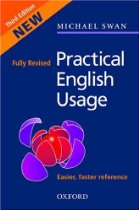Help with Punctuation
by Kimberlin Tan
I recently discovered your website and I think it's brilliant. People, now a days, re having difficulty have at hard time when it comes to English. I for one, do need to polishing on my writing skills.
I am currently into blogging although I'm not much of a writer really. I do hope to be a good one someday.
I
Anyways, I
Hi Kimberlin,
You are not the only person who has trouble with punctuation. We all make mistakes but it is good to learn from them. The first thing I did after reading your question was grab my copy of Practical English Usage by Michael Swan. Whenever I answer grammar questions I always refer to it to double check.
We are in luck too because there is a section on punctuation (pages 459-465). It does a general breakdown of the basic punctuation marks and explains how and when to use them. (I think this book might be quite helpful for you).
My suggestion would be to get a book that explains the punctuations marks in a simple manner and to study the usage a bit. It is a little bit boring but after studying you can do some blogging to practice. After a while punctuation should come naturally.
Here are a couple of explanations from my copy of,
Practical English Usage: Third Addition
Full Stop (.) Question
These three forms of punctuation are used to divide and close sentences. The sentence that follows is always started with a capital letter.
Examples
I like teaching English. It is very rewarding.
Do you like learning English? It is great.
What a wonderful question! You need to write more.
Colon (:)
1) Explanations A colon is used to add more information or an explanation
We need to provide three services: editing, private classes and motivational support.
2) Lists A colon can be used to introduce a list.
Here are five ways to improve your pronunciations: 1)...2)...3)...
3) Subdivisions A colon can be used to divide a title.
How to learn English: Five Secrets How.
Practical English Usage
I hope that helps you with your question. If you would like any more help, don't hesitate to ask.
Have a wonderful day!
Would you like an answer without waiting?
You can answer all your grammar questions yourself and in the comfort of your own home?How? It is simple. Get a copy of
Practical English Usage
I can honestly say that this grammar reference guide is the best I have ever used and I use it daily answering all of your grammar questions; including this question.
Why wait for my answer? When the answer is just a page number away?
Get this book now and start solving your grammar questions!
Click on the image above to buy the book safely and quickly through Amazon.ca
Have a wonderful day everyone!
- Diana :)
Comments for Help with Punctuation
|
||
|
||
Still looking? Search the site for exactly what you need using the site search box below.
Happy exploring!
Discover these Amazing ESL Materials!
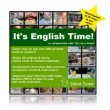 |
 |
 |
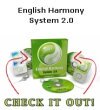 |
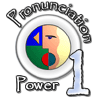 |
 |
 |
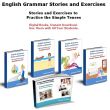 |
 |
 |
